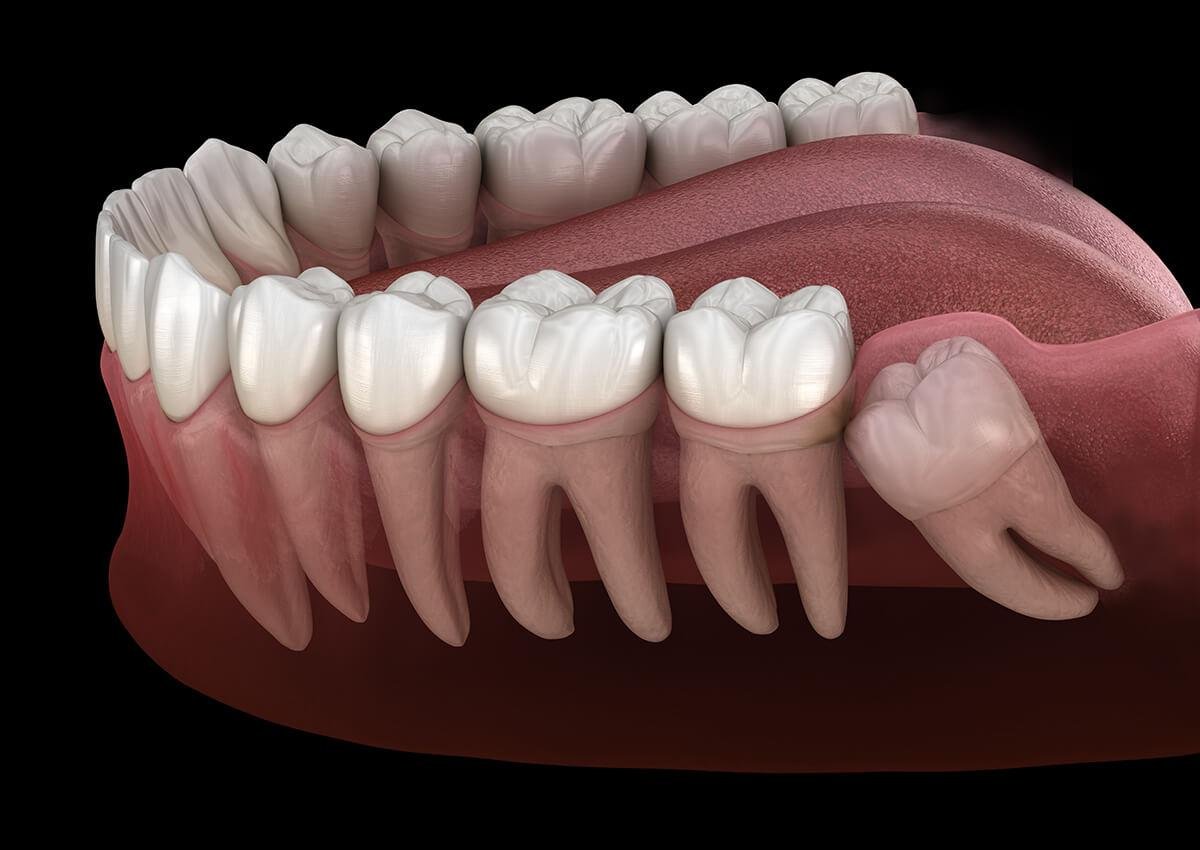What Causes an Impacted Tooth?
When a tooth is unable to erupt through the gums, it is known as an impacted tooth. A partially impacted tooth has started to break through the gums, but cannot fully breakthrough.
Causes
An impacted tooth can be caused by many things. The most common cause is an overcrowded dental arch, meaning the jaw is too small for all the teeth to fit. If there is not enough space in the jaw for a tooth to erupt, it will stay beneath or partially beneath the gums. Some other causes of an impacted tooth include:
Irregular Tooth Growth. This is when a tooth grows at an angle, which can cause it to become impacted. This is common in wisdom teeth.
Dental Trauma. If a tooth suffers an injury, eruption may be delayed and the tooth can become impacted.
Supernumerary Teeth. This is when a person has extra teeth in their mouth. This condition commonly results in impacted maxillary incisors, also known as your top front teeth.
Symptoms
The longer a tooth remains impacted, the more likely you are to experience these symptoms:
Pain or difficulty opening or closing the mouth
Inflamed, tender, and/or red gums
Persistent bad breath
Frequent, sudden headaches
Occasional swelling of the lymph nodes
Commonly Impacted Teeth
Wisdom teeth are the most common teeth to become impacted because many people do not have room in the jaw for them. The solution for impacted wisdom teeth is to remove them.
If you think you might have an impacted tooth, call Midland Dental & Oasis Kids and Orthodontics to schedule an appointment!

